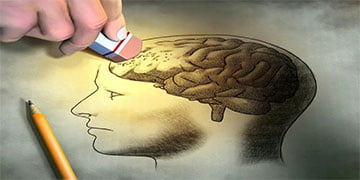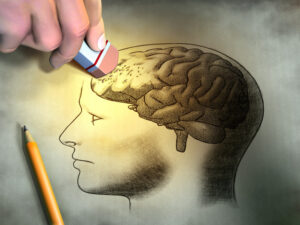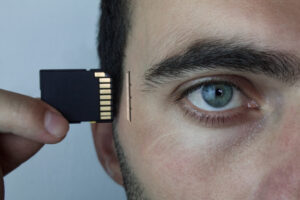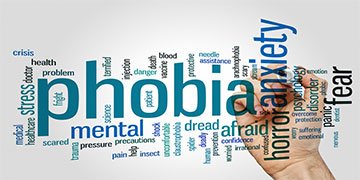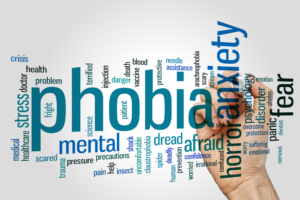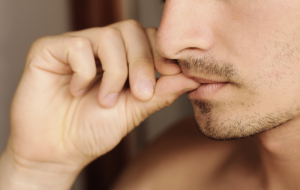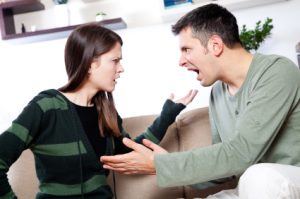Social Smoking When Drinking Alcohol
Social Smoking When Drinking Alcohol
Do you give in to social smoking when drinking alcohol?
For the aspiring non-smoker, it can be a recurrent problem setting up your non-smoking goals and then relapsing when you next socialise and drink alcohol. Not only do you wake up feeling guilty that you have crossed your own non-smoking boundaries, but you feel disgusted because your chest feels tight and you reek of cigarette smoke. Then you spend the morning coughing up the contents of what you’ve inhaled and feel hung-over from the heavy night’s drinking session. Does this sound like a night out that you wanted to avoid?

If your goal is to ultimately stop smoking, it’s important to appreciate the impact that your social smoking rituals and the affect that drinking alcohol has on your behaviour and brain chemistry. Combine the two and it can transform many people’s healthy smoke-free intentions into a “Jekyll and Hyde” night out.
Where does it all go wrong?
Social smoking when drinking alcohol: Adolescent social smoking
Nearly 80% of adults who smoke said that they started smoking before the age of 20. The reasons that people start smoking are very similar to the reasons that people start drinking alcohol.
Psychosocial factors play an important role in encouraging young people to smoke and to form habits that will keep them smoking. During this transition from adolescence into adulthood, the appeal is particularly strong to take risks associated with imitating adult behaviour. It can also be just as attractive to develop reactions that defy controlling behaviour from adult authority figures.
The desire to act like adults however is not matched with an adolescent’s level of brain development. Adolescents tend to be impulsive, ignoring the long-term consequences of short-term behaviour, and tend to lack the analytical decision-making skills that can come from experience. More notably, adolescent decision-making values are filtered though peer group influences. Being praised or criticised by one’s peers motivates adolescents to act or avoid participating in situations.
It’s during these extreme shifts in one’s values that adolescents are particularly vulnerable to starting and persisting with smoking. Smoking cigarettes can seem normal, functional, and deceptively rewarding. It’s not surprising that smoker’s attach beliefs that when smoking, you are: relaxing, having fun, being daring, taking back control, being sociable, being admired and being “grown up”.
What continues the integration of these psychosocial values at a deeper level is repetition with a highly addictive substance. Habits can become consolidated and the “positive” beliefs can then form attachments to other situations. During times of stress or anxiety, the associations of relaxation, having fun etc. create the urge to smoke a cigarette to relieve this stress or anxiety. In addition to other intrapersonal factors, it’s during these habit-consolidation stages that a smoker will convert from being an intermittent social user to a higher personal dependency on nicotine. In other words, you become the “regular smoker” building your dependency on nicotine into addiction.
Contrary to this development, some people are able to place tight boundaries around their smoking rituals, ensuring that it stays within the domain of social situations. They may have already crossed-over into personal nicotine dependency for a many years before reverting back to occasional use. Or it was never their intention to become a “real” smoker, perceiving it as a socially-defined ritual from the start.
Social smoking when drinking alcohol: The social smoker
The social smoker is also known as the occasional smoker, the light smoker or the casual smoker. You may never buy a pack of cigarettes, but instead prefer to scrounge cigarettes off your mates. Without buying a cigarette, it may maintain a state of denial, helping to convince you that you don’t really smoke and could quit at any time. You may also believe that the intermittent nature of your smoking carries no health risks, but this is a myth as even second-hand smoke can harm your health.

As a social smoker, you may view your smoking as a legitimised “dirty habit”, but continue because you are convinced that it helps you to socialise. Unlike some defiant smokers, you are respectful of and are sympathetic towards other non-smoker’s wellbeing. You will suppress your smoking habit in a situation if it is likely to set a bad example e.g. if smoking in front of young children. You will resist your urge to smoke if it might offend someone or be considered harmful to their health.
Your occasional social smoking ritual may involve binge smoking, as your patterns involve conforming to the social rituals of others. You lose track of the number of cigarettes that you smoke since you are unable to register having an empty packet. Over the course of a social weekend, the number of cigarettes that you smoke might exceed the level of a genuine “regular” smoker who smokes constantly throughout the week.
Social smokers may use nicotine for its psychoactive effects, such as for stimulation and pleasure. You are not addicted to nicotine, since you suffer none of the cravings, irritability or withdrawal symptoms in common with regular smokers. You are probably addicted to the ritual of smoking in social situations however, defined by some as a compulsion. Compulsions are prone to growing uncontrollably. With the potential for social-smoking being part of whole days spent during social weekends with your peers, your social smoking habits can place you on a slippery slope towards addiction.
Challenging peer group values and personal values
If your goal is to quit social smoking, it will mean confronting the identity and group culture of your peer group. Can it change or is your peer group defined by conformity? In some social group situations, many individuals want to change something negative about the group but fear being judged or evicted from the group.
Alternatively, quitting social smoking can involve strengthening your personal non-smoking values and believing that they are good enough for your peer group to accommodate. You can be proud to stand out as being different. Ultimately, if all that matters to the peer group is your conformity to do what they do, you may decide to join a different group that accepts you and the life that you want to lead – and not the life that others expect you to lead.
Social smoking when drinking alcohol: Adolescent drinking
Adolescent reasons for drinking alcohol are very similar to the reasons for starting smoking listed above. The reasons include peer pressure, self medication, defiance, sensation seeking, desire to take risks, and imitation of adult behaviour. As with smoking cigarettes, associating a potentially addictive substance with these values is likely to consolidate the “rewards” when combined with the repetition of drinking alcohol.
Another feature of drinking regularly is one of an increased tolerance to alcohol, whereby you need to consume more of it to have the same beneficial effect. Often, this means bypassing the initial “high” that you previously gained from it whilst in pursuit of your sought-after reward. At the physiological level, as your tolerance increases, you are changing your brain’s wiring system.
During the adolescent period, there is still a significant level of brain development. The short term effects of alcohol on the still-developing brain include lower cognitive attention, reaction, functioning and memory. Possible long term effects can include increased alcohol dependency.
There are many different reasons that someone can end up being dependent on alcohol to some degree, even if it means struggling to get through the weekend without at least one binge-drinking session. Having sustained periods to consolidate your “rewards” during adolescence when there is a significant amount of brain plasticity may form a deep association and possible dependency into adulthood that the only way to access these “rewards” is by drinking alcohol.
Combining alcohol into the social smoking mix
Not all adolescents smoke and drink alcohol, but these “gateway drugs” are often amongst the first experimental substances to be used concurrently. In one research study of smoking and drinking amongst youth over 98% of the sample of smokers also drank alcohol, suggesting that smoking is a reliable indicator of alcohol use.
The reasons that adolescents both smoke and drink relate to the same reasons listed above for drinking and smoking e.g. peer-pressure, looking cool, looking grown up etc.

Believing that both substances give you these rewards will compound these associations, integrating the links that smokers often make that drinking alcohol and smoking cigarettes “go hand in hand”. When these rewards have been integrated, these combined substances can change your brain chemistry and deceive your brain into thinking that the respective behaviours of smoking or drinking will actualise these beliefs from one another. So when you are participating in one activity e.g. having a great time when drinking socially, the activity can act as a cue for the rewarding memory that powers your craving or urge to then smoke a cigarette.
Social smoking when drinking alcohol: The desire to quit smoking
As adolescents move into adulthood, values can change. What was previously considered a good habit can become a bad habit. The previous adolescent beliefs that activated your smoking or drinking habits may not be important to you, or may not justify your reasons to continue those habits as the young adult. Obviously, you don’t have to “look grown-up” by smoking cigarettes when you are a “grown up” adult for example.
The young adult will also create new beliefs and want to form new habits that complement that stage of your life. Attention to your health and the cost implications to maintain these habits can be reasons to change your habits.
In a survey, about a quarter of the adult sample that drank alcohol just wanted to cut down their alcohol consumption into “controlled drinking”, but not quit drinking completely.
In another survey, it was found that 70% of adult smokers wanted to quit smoking completely.
How does drinking alcohol socially affect a smoker’s ability to kick the smoking habit?
Social smoking when drinking alcohol: potential relapses
From my experience of helping clients quit smoking, one of the main reasons that people have previously lapsed and relapsed back into smoking is due to attending a major social drinking occasion in which several of the peer group smoked cigarettes.
When I’ve treated clients for smoking cessation, one of the biggest fears when stopping is to put in all of the hard work to not smoke for a few days, to then think that you have nailed it, only to lapse on a social drinking night out.
Many smokers quit using NRT, medication from the GP, with therapy or even with self help quit smoking methods. Some smokers may vape as a progressive shift away from smoking cigarettes. Adopting an effective quitting process can involve identifying your potential relapse triggers to prepare you for situations that will trigger your urge. Your stop smoking goals can run smoothly until you hit that situation that helplessly eliminates your good intentions.
When you have background experiences of social smoking when drinking alcohol, the force of habit can make this situation particularly difficult to change what you do when you are in that situation again. Deeply entrenched values from adolescence can form the learned associations that intensify the urge to lapse or relapse back into social smoking when drinking alcohol.
But it’s not just the background experiences that are causing these urges though. Once you have created the “cocktail” of chemical pathways by using both substances concurrently, there are research-based explanations that will then drive your urges to continue that behaviour. It will also explain why so many aspiring non-smokers lapse and relapse when they drink alcohol socially. The urge to smoke and drink together is not just a coincidence.
Why people are prone to social smoking when drinking alcohol
The research-based explanations for why people lapse (and relapse) into social smoking when drinking alcohol includes:
Rational decision-making processes are diminished when drinking alcohol
You can probably relate to the scenario when you have kept off cigarettes for a few days, are dealing really well with the cravings and think that you have cracked it! Then to you decide to enjoy a night out, drinking with your friends to celebrate. In the pub, they venture over to the outdoor smoking area and you join them without giving it a second thought.
Now, if you were driving and staying sober for example, your self-discipline would see this situation as a threat to your quit-smoking goals and would stop you in your tracks. Having shared a few rounds of drinks with your friends however, the implications of your smoking behaviour are rapidly brushed aside.

Even moderate drinking raises your impulsivity. It does this by increasing the amount of nor-adrenaline in the brain, elevating your levels of arousal and excitement. When drinking alcohol, it means that you are prone to seeking immediate rewards rather than the risks associated with those rewards.
Alcohol also removes your rational decision-making abilities by dampening activity in the pre-frontal cortex part of your brain. This means that you will find it hard to resist the offer of a cigarette because your inhibitions are reduced and you are not thinking about the consequences of your long term quit-smoking goals.
Nicotine counteracts the drowsy effects of alcohol
You may already be aware of the sluggish, depressant effects that a heavy drinking session can have on your mood as the night continues. Researchers have identified that the stimulating effect of nicotine can counteract the sleepiness caused by alcohol. This can explain why smokers crave a cigarette when they have drunk excessively and rather than “call it quits” for the night (knowing that you have had more than enough), you will use the stimulants in nicotine to prolong the evening. According to the research, nicotine thus increases your mental alertness, neutralising the sluggish effects of alcohol.
Alcohol and nicotine reinforces/eliminates the effects of one another
When you have had a few drinks and crossed the barrier of smoking one cigarette, the alcohol and the nicotine will be boosting the rewarding properties of the other substance. Nicotine and alcohol act on the same brain pathways, particularly on the mesolimbic dopamine system.
This process would substantiate why so many people say that smoking and drinking goes “hand in hand”; the feelings of pleasure are increased when you combine alcohol and nicotine, flooding your brain with high levels of dopamine and increasing the cravings of one another.
However, other researchers have argued that the combined effects of both substances aren’t all pleasurable. When smoking and drinking simultaneously, stress hormones effectively interact to cancel out the release of dopamine.
This research is suggesting that you feel happy when you smoke and drink separately, but when you smoke and drink together, drinking alcohol is first bringing up the happy memories of smoking. You then smoke a cigarette with your alcoholic drink and your dopamine levels drop. So you drink alcohol more to recover your dopamine and this reminds you of the pleasures of smoking...and so the reaction-cycle continues. Thos who smoke and drink together may find this process particularly tough to eliminate in that moment when a mix of different chemicals are flooding the brain.
Social smoking when drinking alcohol: Quitting smoking
With drinking alcohol increasing the urge to smoke cigarettes and smoking cigarettes increasing the urge to drink more alcohol, the risk of binge behaviour and addiction are high.

By quitting smoking cigarettes however (which the majority of adult smokers want to do), it can lower your alcohol consumption and potential for alcohol-related health problems.
Your may seek help from a hypnotherapist to assist your journey. Or work on some self-help strategies:
First things first...
In your smoking cessation journey, first ensure that nicotine is out of your system for at least three days. Use relaxation techniques to counter the cravings and to deal with stress. Continue to replace any smoking habits with new non-smoking habits and repeatedly integrate them with a feeling of achievement. The social smoker won’t have too many problems with this stage.
Temporarily avoiding social smoking when drinking alcohol
For the social smoker who socialises heavily on the weekend, achieve three days without smoking by recovering from the previous weekend’s activities and waiting until midweek to focus on your smoking cessation goals for the following weekend. Try to curb your midweek socials for a while.
In the short term, change your routine as this will help you to confront your smoking and drinking habits and it will help you to be aware of your smoking lapse triggers.
Some situations target drinking and smoking behaviour. Pubs often welcome smokers as their main audience by creating bigger outdoor spaces to accommodate smokers.
New activities and locations
Can you organise a non-social drinking situation by changing the activity? Do you feel the pressure to smoke because of the location e.g. by going to a specific pub, or because of the people you socialise with e.g. do all of your friends smoke? Can you temporarily socialise with your non-smoking friends?
What would happen if you asked trustful friends to give you a reminder of your non-smoking intentions when you are out? Can you avoid leaving the non-smoking area and venturing over into the smoking area? Can you plan to leave early if you feel the growing pressure to drink in “rounds”?
Lowering your alcohol consumption will help you smoke less. What non-alcohol drink can you drink instead? If you don’t smoke whilst socialising, it may help you reduce your total alcohol consumption.
Reappraise what drives your binge behaviour
Then consider if your socialising is a binge activity. What aren’t you dealing with through your week (or in your life) that is being channelled into the binge drinking and smoking habit on the weekend?
What other more effective ways can replace how you cope with stress throughout the week that will take the pressure off the weekend?
Hypnotherapy to help social smoking when drinking alcohol
If you are a social smoker and your goal is to become a non-smoker, confronting your social habits is an essential part of achieving your goal. With persistence, changing those old negative habits will lead to you forming new positive socialising habits. Initially it will seem like something is missing, but keep focused on your goal and it will become a natural part of how you socialise.
You can contact me for more help if you are struggling with any part of your quit smoking programme.














